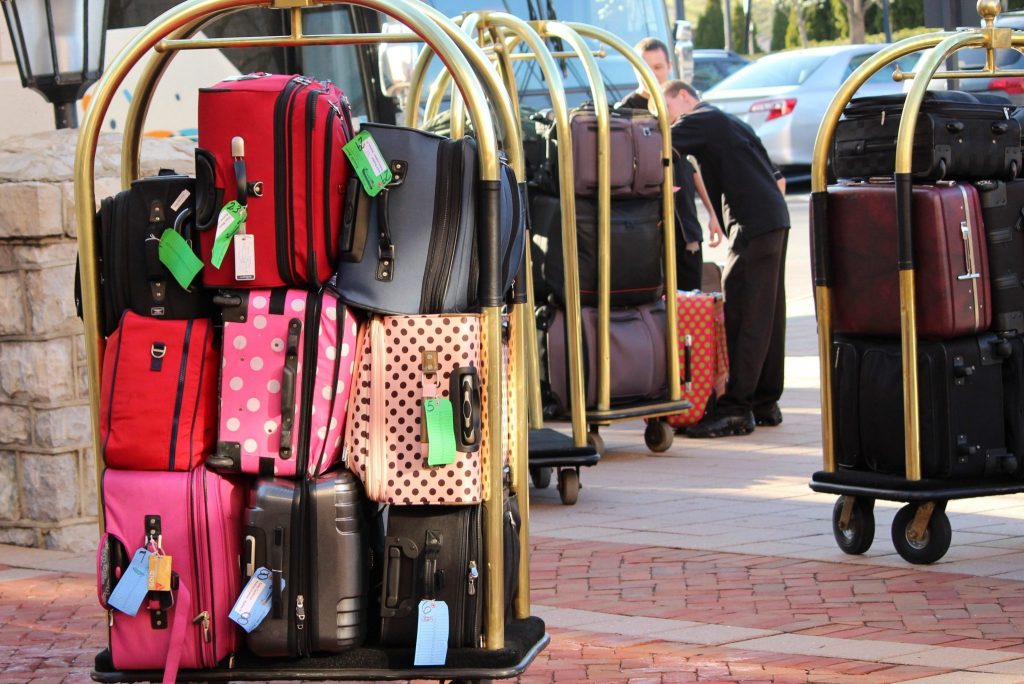Skift Take
U.S. hotels continue to post strong job numbers thanks to summer leisure travel demand, but the industry can't afford to ride on blind optimism. The Delta variant throwing a wrench in the expected return of business travel will show up in jobs reports later this year.
Hotels need workers, and July delivered another month of a much-needed boost in employment.
The U.S. added 74,000 jobs to the hotel sector last month, the Bureau of Labor Statistics reported Friday. It is the third-highest rate of job growth since the start of the pandemic. The hospitality and leisure sector, which includes bars and restaurants, added 380,000 jobs last month — a major factor in lowering the overall unemployment rate to 5.4 percent.
The job gains come as hotel executives continue to grapple with ways to recruit more staff following a catastrophic wave of job layoffs and furloughs last year as a result of the pandemic.
“It was a good report,” said American Hotel & Lodging Association CEO Chip Rogers. “It continues to mirror the growth we’re seeing in the industry.”
The hotel sector’s unemployment rate fell three points to 14.6 percent — still above the national average but well below the nearly 50 percent unemployment rate seen during the worst of the pandemic drop in travel demand last year.
If hotel job growth continued at its current pace, the industry could be back to pre-pandemic employment levels by the end of the year, Rogers said. However, he expects job growth to flatten or even decline later this year when summer travel demand dissipates.
Hotel executives are still grappling with how to fill open positions amid a sharp rise in leisure travel demand this summer. The average U.S. hotel occupancy rate last week was a little more than 70 percent, according to STR. It was also the second time this summer U.S. hotels out-performed 2019 levels in terms of revenue per available room, the industry’s key performance metric.
Marriott is “working to address the labor challenges we are seeing” primarily in rapidly recovering markets like south Florida, Texas, and Arizona, the company’s CEO Anthony Capuano said on an earnings call this week.
“The labor environment has been challenging, putting significant pressure on our teams to deliver the high level of service our guests expects from our brands,” Hyatt CEO Mark Hoplamazian said later on his own company’s investor call.
The July hotel jobs report shows a recovery under way, but overall leisure and hospitality employment is still down by 1.7 million jobs, or a little more than 10 percent off pre-pandemic levels, according to the Labor Department.
The rise of more contagious strains of the virus like the Delta variant also throw volatility around the recovery heading into fall, when many hotel companies expected and hoped corporate travel would kick back into gear.
“There are no ifs, ands, or buts about it: Job growth is a positive for the lodging sector. The question is how durable is any of this,” said LW Hospitality Advisors CEO Daniel Lesser. “Sure, these rebounds look great, but there’s still pain out there. It’s going to take a while to get back to pre-Covid levels, but there’s no question this is encouraging.”
While July was another month of strong job growth for the hotel sector, one potential labor pool is likely to remain limited as long as the world is dealing with contagious variants of the virus.
The H2B and J-1 visa programs bring in international workers for temporary job placement in the U.S. Hotel owners in vacation markets like Cape Cod, Massachusetts often rely on these programs to staff up, given the seasonality of these regions not being conducive to full-time, year-round work.
The Biden administration reopened the programs this summer, but both initiatives are likely to remain limited in light of the Delta variant keeping travel restrictions in place across many international borders, U.S. Labor Secretary Marty Walsh said Friday on CNBC.
Hotel companies aren’t just relying on these foreign worker programs, however. Incentives like sign-on and retention bonuses as well as wage increases and flexible work hours are all on the table to bring on more staff. Marriott even launched a marketing campaign touting the opportunities to be had within the hotel industry.
“There’s no question the industry has been able to figure out a few things over the last few months to get people back into the workforce,” Rogers said. “The industry learns quickly when you have a problem as big as this labor problem has been for us.”
Have a confidential tip for Skift? Get in touch
Tags: ahla, business travel, coronavirus, coronavirus recovery, employment, labor, leisure travel, restaurants, str
Photo credit: The U.S. hotel industry last month posted its third-highest rate of job growth since the start of the pandemic. Shown are luggage carts. Piqsels
